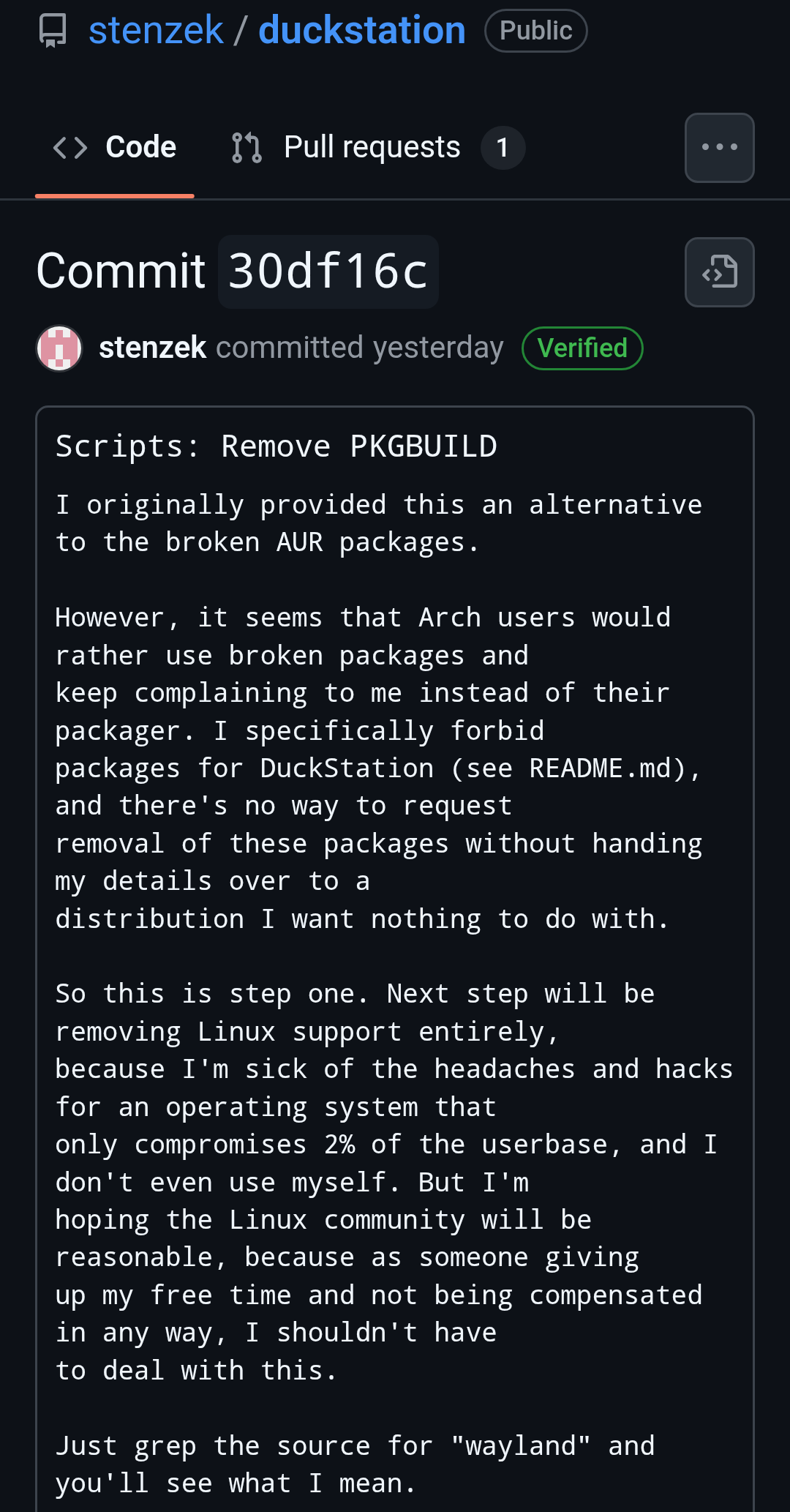this post was submitted on 30 Jul 2025
711 points (95.5% liked)
Technology
73512 readers
3197 users here now
This is a most excellent place for technology news and articles.
Our Rules
- Follow the lemmy.world rules.
- Only tech related news or articles.
- Be excellent to each other!
- Mod approved content bots can post up to 10 articles per day.
- Threads asking for personal tech support may be deleted.
- Politics threads may be removed.
- No memes allowed as posts, OK to post as comments.
- Only approved bots from the list below, this includes using AI responses and summaries. To ask if your bot can be added please contact a mod.
- Check for duplicates before posting, duplicates may be removed
- Accounts 7 days and younger will have their posts automatically removed.
Approved Bots
founded 2 years ago
MODERATORS
you are viewing a single comment's thread
view the rest of the comments
view the rest of the comments

yes and no:
the copyright owner can do whatever they want, but they can't really revoke a GPL license. that's not really a thing.
and the part about
seems to me like you are implying that "use under the old license" means "run the program on my own machine", but that's not true, since GPL explicitly allows redistribution and modification.
under a GPL license, you effectively give up control over your software voluntarily:
(highlighted the relevant portion for your convenience)
this makes revoking the license effectively impossible.
you could continue development under a different license, but that gets legally tricky very quickly.
for example: all the code previously under GPL, stays under GPL. so if someone where to modify those parts of the code and redistribute it as a patch, you couldn't legally do anything about that.
which seems to be what the OOP claims the change to a CC-BY-NC-ND forbids, apparently misunderstanding, that this new license only applies to code added to the repo since the license change, not the code from before the license change.
Thats not completly right at least under german law (and most likely also under us law).
A license is basically a contract between you and the copyright owner. If the copyright owner changes the distribution of a piece of software to a new license you have a diffrent contract with them. So you have to hold up this new license. If you already had a license (in this case gpl) you can use this old contract, but you can not download a new copy delete what was added since the copyright change and use that under gpl. You would have to proof that you had the gpl license before or in this case that it got relicensed to you.
what a ridiculous idea. that's not how anything works:
copyright applies to the intellectual property, not the exact file.
so the code itself is the copyrighted thing, not the file you download.
it doesn't matter whether you download the gpl version, you type out the gpl version by hand, or delete all new code until only gpl code is left.
all you would need to proof is that the code is identical to the gpl code. how you got to that code is completely irrelevant.
you have some fundamental misunderstandings about copyrighted material, intellectual property, and fair use.
most importantly: copyright applies to intellectual property. the idea of a thing, not the physical thing.
so in the case of this emulator, the file and where you got it from is completely irrelevant; only the content of the file, the code, has any meaning. which means any files that contain the same code are identical in the eyes of the law, regardless of how you got them.
copyright is not a contract, but a license. and a license is a manual that explains how intellectual property (the idea of a thing, not the physical thing) is allowed to be used by someone. it's not specific to an individual, which is why contracts have to be signed by both parties. so no, you don't have a contract and no obligation to adhere to the new one at all. you can choose to use the old license, as long as you don't use any of the new code.
unless you want to modify and/or distribute the new code, the license (CC-BY-NC-ND) is irrelevant for the user.
and you can modify your own private copy as much as you want, you just can't distribute it, or modify and use it in a way that is illegal in some other way. but that's about it.
and all of this applies to both US and german law.
and none of this is remotely relevant, because the gpl version is still available for download!
nothing got replaced, so the gpl license is very much still applicable to that version of the software!
"new" does not mean that the old version went anywhere; it's still around. and you can still use, modify, and distribute it under the gpl.